“I have always been a rugby
fan. … And thanks to the encouragement of my brothers, I joined the first
women’s team, the Citadel club in 2018, when I was just 12 years old,” said
Zain Abzakh.
اضافة اعلان
Abzakh’s rugby
journey has not been smooth recently. She suffered a severe shoulder injury
during a match this year, which kept her away from the game for a month. “I
fell after receiving a blow from another player. I felt severe pain in my
shoulder and, at the time, I received no medical assistance except for an ice
bag.”
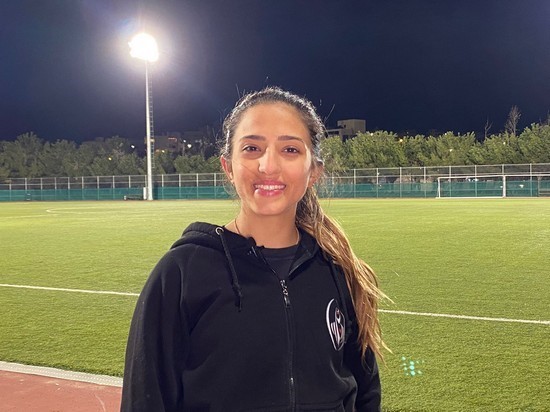 Amanda, 31. (Photos: ARIJ)
Amanda, 31. (Photos: ARIJ)
“Later on, I saw
a specialist — that my family paid for,” she said. “Female rugby players are
not covered by health insurance. My family is still paying for my physiotherapy
sessions for my shoulder, which has not completely healed.”
Supervisors and
other players, much like Abzakh, have echoed that women’s rugby clubs suffer
from poor infrastructure and a lack of financial support from the Jordan Rugby
Committee and the
Jordan Olympic Committee.
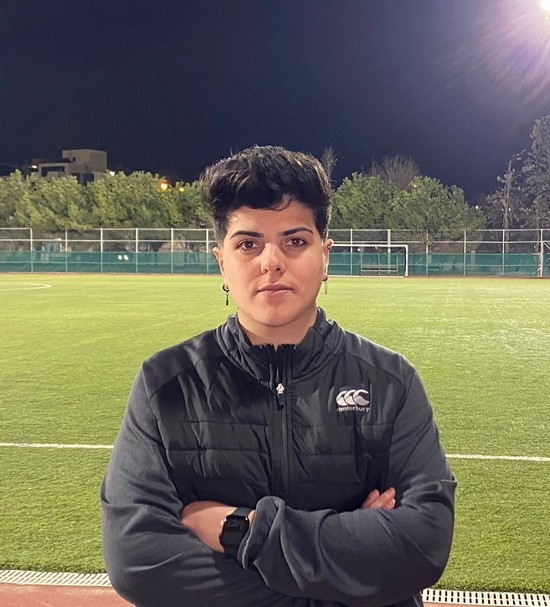 Taz, 27.
Taz, 27.
There are three
rugby clubs in the Kingdom: Citadel, Nomads, and Sosruka, and they all have
men’s and women’s teams.
According to the
Jordanian Rugby Committee, there are around 150 female rugby players in the
Kingdom.
Hala Al-Omar,
34, a rugby player with the Nomads, said: “For five years, we have been
experiencing the same issues. There is no improvement in the status of the
clubs.”
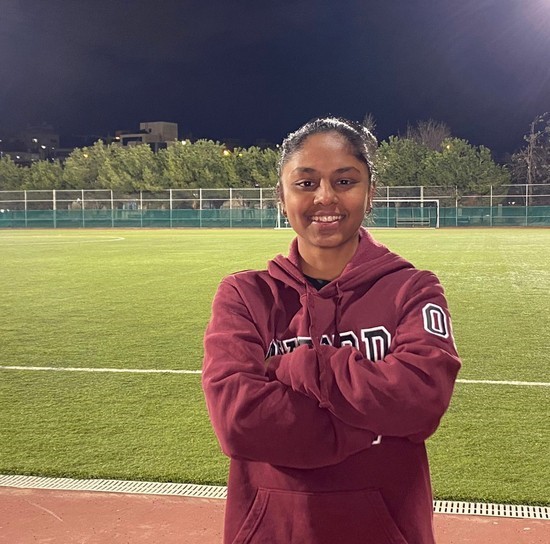 Lynnthy, 18.
Lynnthy, 18.
“When we have a
training session, we go to the location at our own expense, which could be
quite the distance. The clubs also do not have the financial ability to secure
transportation,” she said. “Most of the players do not have jobs.”
In the 2019 East
Asian Championship, she said, “we had to wear the boys’ uniforms because we did
not have our own. And that was the only time we participated in a tournament.”
Lack of support for
local clubs
Citadel Coach Freih Kawar confirmed the difficulties rugby clubs face:
“I train for free. Coaches and referees work for free, and we do not have
health insurance, either.”
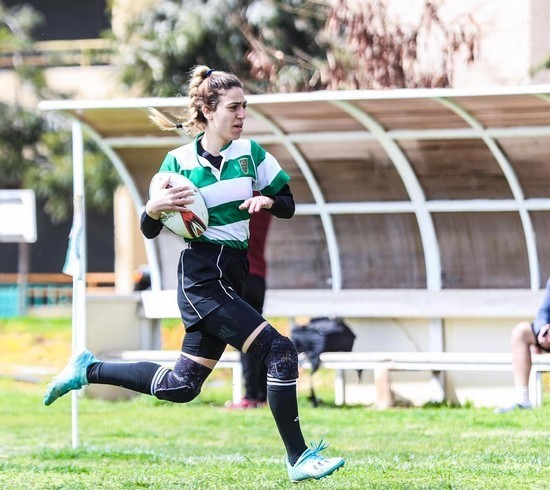 Karma, 26.
Karma, 26.
“Rugby fields
must be made of natural grass and be completely flat, without bumps. But such fields
are not available in Jordan, which sometimes results in severe injuries among
female players.”
Kawar also
questioned funding, “the Jordan Rugby Committee receives around JD35,000
annually from the Olympic Committee, but they only help the club with JD1,000
throughout the year.”
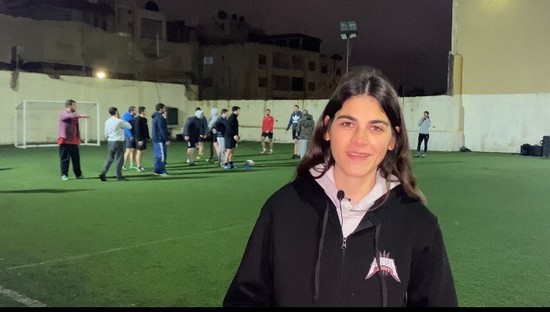 Tatiana, 21.
Tatiana, 21.
“The amount is
meant to be used to prepare local tournaments held twice a year. It should also
be used to find fields suitable for training. Training sessions that last an
hour and a half cost between JD45 and JD75, and we usually train three times a
week.”
The club needs
around JD10,000 annually to cover operational costs, Kawar said. “This year,
the club did not even receive the JD1,000 (from the rugby committee).”
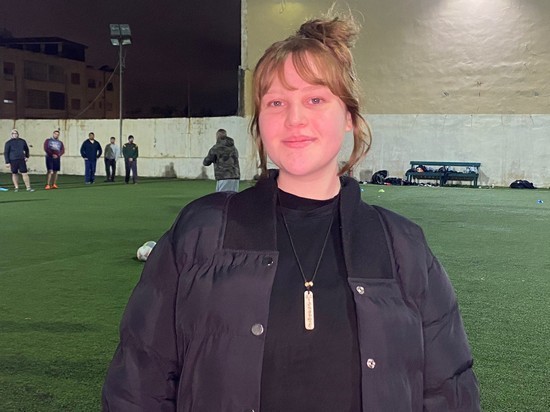 Anbartu, 18.
Anbartu, 18.
Executive
director of the
Jordan Rugby Committee, Aziz Zakaria, said that “all clubs
should reconsider their financial status and devise solutions to generate
revenues by attracting partnerships and sponsorships from the private sector to
support their various sports activities.”
“Material and
moral support for rugby clubs is a priority for the committee,” he said, but he
also acknowledged the insignificance of the financial support provided by the
committee. “The poor financial resources of the Jordan Rugby Committee limit
the financial support it can offer clubs in general. The Jordan Olympic
Committee gives us JD35,000 annually, and this is usually spread over all the
committee’s activities and management.”
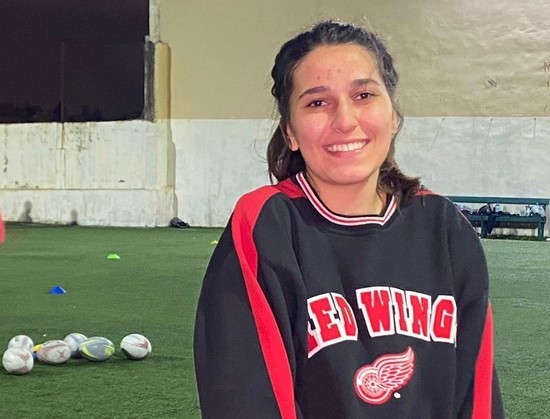 Rand, 18.
Rand, 18.
Local
tournaments and international trips cost around JD15,000, according to Zakaria.
“The committee
supports local clubs by paying for their grass field reservations at the
University of Petra throughout the year,” he said, adding that this is the only
grass field that has accommodated rugby in Jordan.
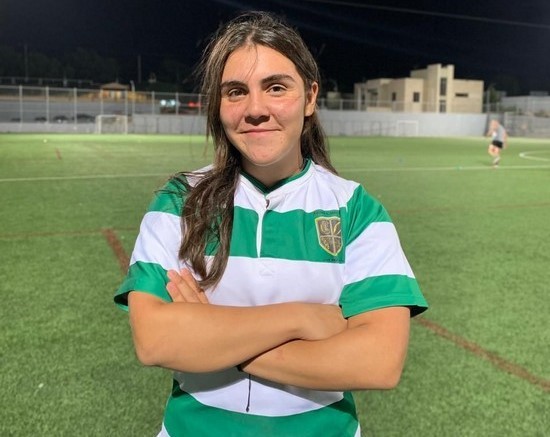 Zain, 16.
Zain, 16.
“The committee
also provides periodic training and educational workshops for referees,
coaches, and players in cooperation with the Asian and World Rugby
Federations,” he said.
Participation
Sosruka club director, Ahmad Hamouqa, formed an 11-player rugby team in
2018, despite the difficulties.
“It was hard to find women with the required
athletic aptitude to join (the team),” he said. “The game itself was not
practiced widely or popularly known as a game played by women in Jordan.”
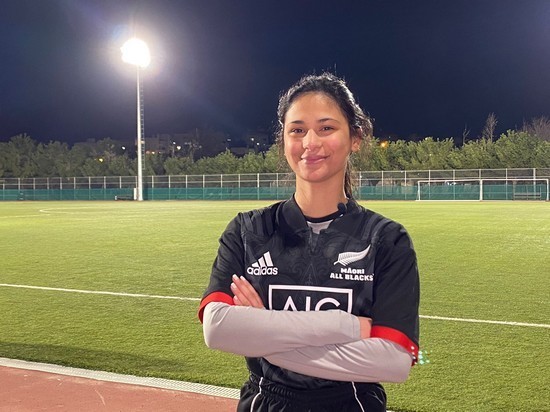 Nujoud, 25.
Nujoud, 25.
The first
participation by Jordanian women abroad was when they participated in the Asian
Rugby Sevens Series Championship held in Qatar in 2019, said Hamouqa. “Our
participation was modest because this is a new sport in Jordan, but it was
still a good first experience.”
Financially,
Hamouqa said, “the club needs between JD5,000 to JD6,000 annually to reserve
fields and JD2,000 or more to purchase uniforms for female players.”
“The JD1,000
allocated by the Jordan Rugby Committee to the club annually cannot be relied
upon,” he added.
Rugby team
players pay a monthly subscription fee of JD10, according to Hamouqa.
Nomads club
player Mohammad Al-Tamimi stressed that rugby is developing slowly due to “the
weak support provided by the Jordan Rugby Committee”.
He said that if
more “reasonable” support were provided, “then we would be able to provide
health insurance to female players, and we would have more of them playing.”
Health insurance
coverage
“Health insurance is a matter of concern for us all,” said Jordan Rugby
Committee executive director Zakaria in response to clubs’ demands to extend
health insurance coverage to female players.
“We know clubs
are facing financial challenges that prevent them from providing all their
players with health insurance coverage. But, on the other hand, we provide
health insurance to male and female players on the national teams in
cooperation with the Jordan Olympic Committee,” he added.
He said that
negotiations have been underway with insurance companies, but they have offered
expensive plans that “we could not afford”.
“This is a
global problem that faces all athletes who play high-contact sports. However,
thanks to the efforts of the Asian Rugby Federation, an agreement was recently
signed with the United Fidelity Insurance Company based in the UAE to provide
health insurance at competitive prices of up to JD70 per person annually, and
all the relevant information has been shared with local clubs,” he said.
Zaid
Al-Sarayrah, the official spokesperson for the Jordan Olympic Committee,
emphasized the local Olympic committee’s support for rugby in many ways,
including “financial, media, marketing, and logistical aspects.”
He also added:
“The committee did not receive any complaints from the players.”
The Jordanian
Rugby Committee is the official entity responsible for rugby management in the
Kingdom, as it falls under the umbrella of the Jordan Olympic Committee. It
oversees the administration and development of the sport, including the
organization of local and foreign tournaments.
The committee
also develops internationally competitive national teams and is an official
member of the Asian Rugby, World Rugby, and the Arab Rugby Federation.
This story was
published in collaboration with
ARIJ.
Read more Sports
Jordan News



